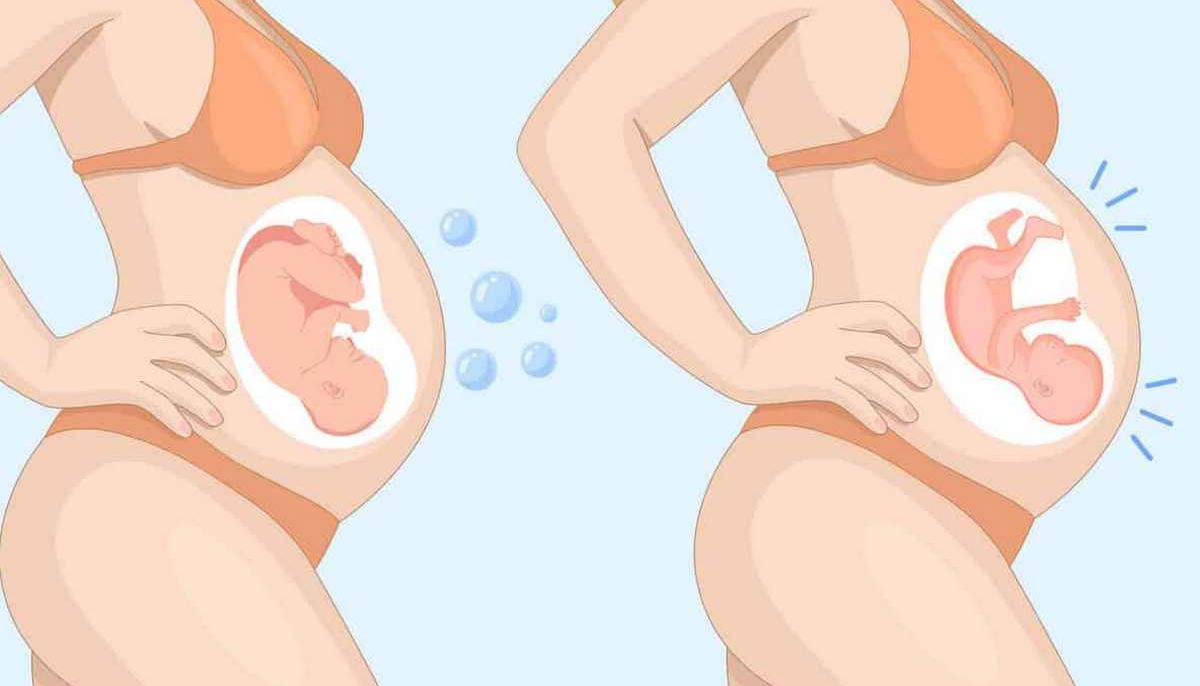The first movements of the baby represent one of the most anticipated moments for any expectant mother, because they are a clear sign of the fact that the future fetus is well and developing healthily. In addition, they create a very strong emotional bond between the mother and the future child, even from the intrauterine stage.
What can be considered fetal movement?
Fetal movement is any movement that the baby makes in the womb, whether it is kicking, waving or turning.
When do the first movements of the baby appear in pregnancy?
The first movements of the baby in pregnancy appear at 6 weeks, but they are not felt by the mother, but can only be observed during pregnancy ultrasounds. The mother feels the first movements of the baby when the pregnancy is more advanced.
Normally, the first movements of the pregnant baby are felt in the 5th month of pregnancy, that is, at 20 weeks, if the mother is in her first pregnancy. In the case of subsequent pregnancies, the first movements of the baby are felt at 4 months of pregnancy, i.e. 16 weeks. It can be said that the interval considered normal for the appearance of the baby's first movements is between 16-20 weeks of pregnancy.
How often are the baby's movements?
There is no generally valid rule regarding the number of movements the baby makes in the mother's belly. However, there are specialists who say that the number of movements of the baby should follow the pattern of 10 hours - 10 movements. The most frequently used formula is 2 hours - 10 movements. The number of movements the baby makes is very important in the last trimester of pregnancy, when any change in the pattern of movements can indicate fetal distress. However, it is important for the expectant mother not to worry if the baby's movement pattern does not comply with the above rules.
Is there a pattern to the baby's movements during pregnancy?
In general, during the day, when the mother is involved in all kinds of daily activities, the fetus sleeps, feeling every movement of the mother as a rocking. During the night, when the mother begins to rest and calm down, the fetus begins to become active, and the mother feels these movements much more intensely. Women who have a thinner abdominal wall can even see these movements in the abdomen: a hand or a leg sticking out.
The number of movements does not decrease during pregnancy. What can change is the nature of the movements, as the pregnancy progresses. This happens because the future fetus can no longer lie down or move as it did before, especially towards the end of the pregnancy.
What is very important is for the mother to get used to the pattern of movements that the fetus has. When this pattern changes, it can be a sign of fetal distress.
Therefore, if the mother feels that the little one deviates from the pattern or moves less, she can eat something sweet or drink something cold, sit on the left side and carefully monitor what is happening.
If the pattern remains changed and she no longer feels the movements of the little one as she did before, the recommendation is for the mother to come to a specialist consultation, to make sure that the future baby is fine.
It is very important for the normal evolution of the pregnancy that the baby's movements are constantly monitored, both by the expectant mother and by the specialist doctor. In this way, there is certainty that the pregnancy develops properly and the fetus as well.
Any change regarding the movements of the fetus is important to be reported to the specialist doctor.







